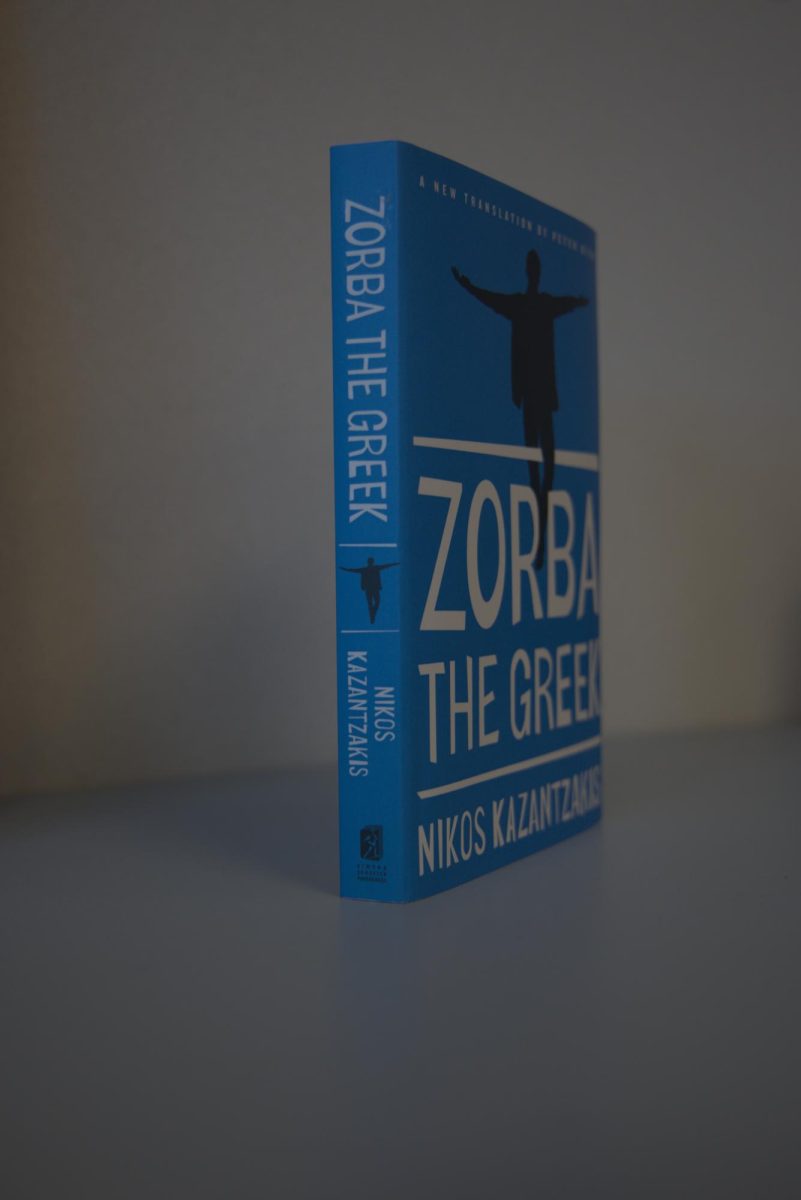My Dad is Greek. His mother comes from the very south of the mainland, a peninsula home to the Maniotes, a group of Hellenic people who descend from the ancient Spartans. His father is from the Greek islands, a brilliantly diverse collection of peoples of many histories and many cultures.
Most consider Greece to be the cradle of Western civilization. By rights, it completely is. Ancient Greek conceptions of pretty much anything all provided the very basis for thousands of years of Western development. But beyond Antiquity, Greece’s history is fascinating.
After the fall of the Roman Empire, the notion of nationalism died completely. There really was no concept of “being Greek,” under Ottoman subjugation – the stench of which being the underlying, hidden conflict of Nikos Kazantzakis’ famous novel, “Zorba the Greek.”
At the steppe of my grandfather’s olive farm on the Greek island of Crete, I have seen and known much of Kazantzakis’s homeland like the back of my hand. The belt I’m wearing right now was bought from a tanner on Nikos Kazantzakis Street in the city of Sitia.
The island is entirely lazy, mostly undeveloped and rural with some hotspots of urbana. No matter where you are, however, beautiful indigo coastlines shimmer under the hot sun. At the shores, taverna after taverna are filled with arguing and celebrating Greeks. And from what I can gather, Crete has been the same way for a long time.
“Zorba the Greek” is a retelling of one unnamed narrator’s adventures with an old, zealous Greek man aptly named Zorba.
Kazantzakis’ prose is ecstatically written, filled with life and vibrance. His words excite me, making me feel truly connected to the Greek experience – Kazantzakis’ efforts having helped develop the modern Greek identity. My copy was translated by Peter Bien, and I have to compliment him on his unique insight into the Greek language and his harmonious capturing of nuance and cultural ethos.
At the very heart of Crete, and subsequently “Zorba the Greek,” lies a rich history of battle between religion, language and culture.
I once, while battling nausea in a dry Middle Eastern heat, got to see the Cretan city of Chania. Among its plastered stuccoes and Venetian rooftops, it is a beautiful city – lively, nestled into the heart of the east Cretan seaboard. Their warm waters are a gift to the world. But one specific building stands out in the marina: an abandoned mosque.
Between 1915 and 1925 the Ottoman Empire underwent a process of political revolution, a switching of power between the ancient Osman monarchs and the young secular nationalists. Likewise to many cultures around the world, the conception of belonging to a group of people – Turkish – erupts among the political turmoil.
In wartime, all non-Turkish citizens of the expansive empire became viewed as enemies. Armenians, Kurds, Greeks, Assyrians, Bulgarians, Arabs. Millions were systematically massacred, and many more cleansed from their native lands at the hands of the Ottoman genocide. Here, in America, only a small part of this process is ever taught in schools, the Armenian genocide, but shockingly, there is so much more.
These peoples were treated as second-class citizens in their lands for hundreds of years. I won’t elaborate on the nature of Ottoman imperialism so as to not lay blame on the modern Turkish people, but the scar of subjugation has never healed. That scar, seen by the many ruins of Turkish culture around the Middle East and Balkans, is allegorically represented through “Zorba the Greek.”
The narrator takes control of a Cretan lignite mine, reclaiming their native resources while managing to know and understand the blossoming modern Greek culture through the eyes of Zorba, who himself only knew a Turkish-controlled world. Managing to find an identity past imperialism is one of the biggest struggles for many modern nations, whether they were the imperialists or the imperialized.
Here in America, I fear that we desperately overlook this nation’s sins. “Zorba the Greek,” the lessons it provides, offers a lens to 21st century America that cannot be ignored. This nation cleansed its native inhabitants mercilessly. Around the Pacific, America subjugated islands for capitalistic purposes. Nowadays, to say the least, America has cruelly intervened in the fates of billions for the purpose of propagating a Western hegemony of control, exploitation and greed.
Look no further than America and our senseless funding of Palestinian genocide – a conflict that, much to my dismay, somehow divides Americans. Managing American foreign policy, once more, harshly divides Americans between foreign interventionism and isolationism. Racial equity forces Americans to pick sides on the grounds of skin color.
Such conflicts threaten to destroy this country. And from there, is there any coming back? Is there the possibility to develop an identity not defined by subjugation?
Kazantzakis aimed to answer these questions that are all too relevant in this modern world. My only hope is that the final possibility of complete collapse is one that Americans shall never have to see. For a beautiful read this spring, choose Nikos Kazantzakis’ “Zorba the Greek.”


